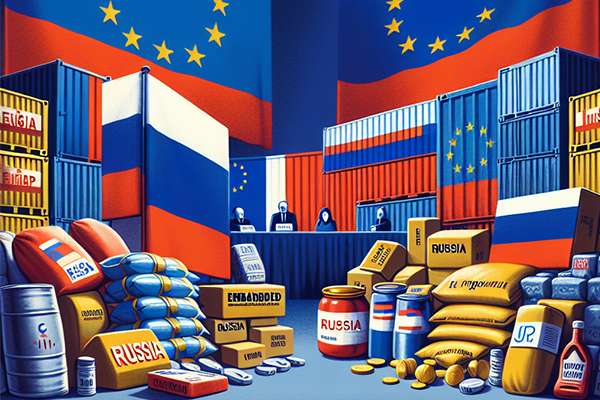On June 25, 2024, the Council of the European Union officially announced the 14th round of sanctions against Russia, putting 61 entities, including Russia, China, Kazakhstan, Kyrgyzstan, Turkey and the United Arab Emirates, on a blacklist directly supporting the Russian military and industrial complexes to launch war. This round of sanctions is notable because 19 Chinese entities were included in the list. These entities were accused of participating in circumventing trade restrictions and participating in the procurement of sensitive items such as drones for the production, or providing material support for Russian military operations.
Sanctions and specific measures
The EU’s sanctions against Russia have been in place for a long time, especially after the outbreak of the Russian-Ukrainian conflict in 2022, when the EU’s sanctions against Russia gradually intensified. This round of sanctions targeted entities that are believed to directly support Russian military and industrial complexes. Entities on the blacklist will be subject to stricter export control measures, which include dual-use goods and technologies, as well as goods and technologies that could help strengthen Russian defense and security sector technologies.
Specifically, these Chinese entities will face stricter export controls involving goods and technologies including but not limited to drones, satellites and their related technologies.

Chinese entities involved
Among these 19 Chinese entities, some companies have been listed on export control lists by the United States and Japan. For example, the Yangtze Space Science and Technology Institute Limited and Shenzhen Five Higher Innovation Technologies Limited have long been listed on export control lists in the United States and Japan, while the Yangtze Satellite Technology Co., Ltd. and Beijing and German Aerospace Technology Co., Ltd. have been listed on the SDN (Specially Designated Nationals and Blocked Persons) list by the US Treasury Department.
These companies were accused of being involved in providing satellite images and other sensitive technologies to Russia. For example, according to the Joint Morning News 25 June 2024, AFP in October last year that the Wagner Group signed a contract worth more than $30 million (approximately $40.5 million) in November 2022 with Beijing Zazee Technology Co., Ltd. to purchase two satellites and use their images. The two high-definition satellites belonged to Long Photonic Satellite Technology Co., Ltd. based in Yangtze City.
Expansion of the sanctions list
So far, the EU has published a total of 675 entities on its list of export control entities related to Russia. These entities are distributed across several countries and regions, demonstrating the EU’s widespread coverage and strict attitude in imposing sanctions on Russia. Especially in this sanction, 19 Chinese entities have been included in the list, showing the EU’s high concern for Chinese enterprises in military cooperation with Russia.
International Response and Impact
This round of EU sanctions will undoubtedly have a certain impact on China-Europe relations. China has expressed strong opposition to EU sanctions, believing it is an unfair treatment for Chinese companies, and said it will take corresponding countermeasures. A spokesman for the Chinese Ministry of Commerce said that the EU’s decision not only damages the legitimate rights and interests of Chinese companies, but also has a negative impact on China-European economic and trade cooperation.
On the other hand, this round of EU sanctions has also been supported by the United States and other Western countries.The U.S. government said it would continue to work with the EU to further strengthen sanctions against Russia to force Russia to stop its military operations.
Perspectives and conclusions
The EU’s 14th round of sanctions against Russia, especially against 19 Chinese entities, marks further escalation of differences between Central Europe on sanctions against Russia.Though these sanctions aim to weaken Russia’s military capabilities, they do not inevitably bring new challenges to Central European economic and trade relations.


 Follow customer service WeChat
Follow customer service WeChat